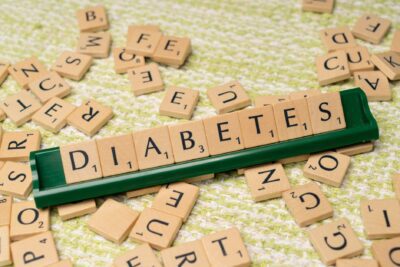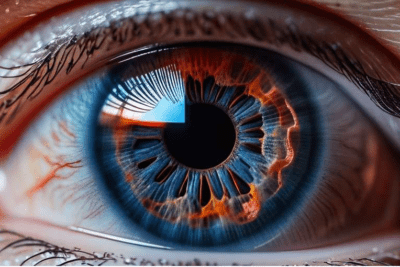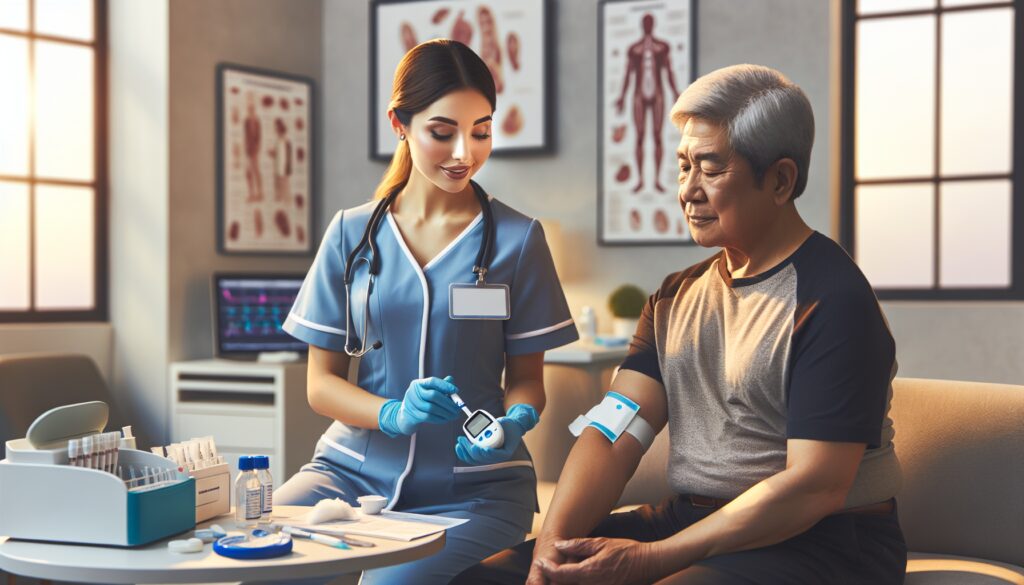
Diabetes is a condition that affects millions worldwide, with many unaware they have it. Getting tested for diabetes is essential for early detection and management. Timely diagnosis can lead to better health outcomes and prevent complications.
Understanding the symptoms and the testing process is crucial when facing the risk of diabetes. Through this article, we will guide you through the importance of screening, the tests involved, and what steps to take following a diagnosis.
🔍 Seeking a breakthrough in Type 2 Diabetes management?
Discover our expert insights and innovative approaches on ‘How to Cure Diabetes’.
Click to transform your health journey today!
What you\'ll find in this article?
What Are the Symptoms of Diabetes?
The symptoms of diabetes can be subtle but should not be ignored. Common signs include increased thirst, frequent urination, unexplained weight loss, fatigue, blurred vision, and slow-healing sores. If you experience any of these, it's important to seek medical advice.
Recognizing these symptoms early can lead to a quicker diagnosis and treatment plan. Pay attention to your body and report any persistent changes to your healthcare provider.
It's also important to note that some individuals may not experience any symptoms, making regular check-ups vital.
Explore our specialized services in diabetes care 🌟.
From personalized diet plans to effective exercise routines, we have what you need to take control of Type 2 Diabetes.
Visit our services page now!












Why Should You Get Tested for Diabetes?
Testing for diabetes is crucial because it allows for early intervention, which can significantly reduce the risk of complications such as cardiovascular disease, nerve damage, and kidney issues. Early detection often means a better prognosis.
If you have risk factors such as obesity, high blood pressure, or a family history of diabetes, testing becomes even more important. Lifestyle changes and medication can manage diabetes effectively if caught early.
Who Should Get Tested for Diabetes?
Anyone exhibiting symptoms of diabetes should get tested. Additionally, individuals over the age of 45, those with a family history, or who are overweight should also consider screening.
Pregnant women are screened for gestational diabetes, and those with prediabetes should be monitored regularly to prevent progression.
How Is Diabetes Diagnosed?
Diabetes diagnosis typically involves a series of blood tests to measure glucose levels. Your GP will review your symptoms, medical history, and risk factors to determine if testing is necessary.
Understanding the process of getting tested for diabetes is important. It's a straightforward procedure that can be coordinated by your healthcare provider.
What Blood Tests Are Used to Diagnose Diabetes?
Several blood tests are used to diagnose diabetes. The HbA1c test measures average blood sugar levels over the past two to three months. A fasting blood sugar test requires you to fast overnight before your blood sugar is measured. The glucose tolerance test involves fasting and then drinking a sugary solution, with blood sugar levels checked over the next few hours.
These tests provide a comprehensive understanding of how your body manages glucose and can indicate whether you have diabetes or prediabetes.
What Happens After a Diabetes Diagnosis?
After a diagnosis, your GP will discuss treatment options with you. Managing your health after a diabetes diagnosis generally includes lifestyle changes, monitoring your blood sugar levels, and possibly medication or insulin therapy.
Regular follow-ups and education about diabetes management strategies are critical. The NHS Diabetes Prevention Programme offers tools and guidance for those at risk or diagnosed with diabetes.
How Do You Get a Diabetes Check?
To get a diabetes check, schedule an appointment with your GP who can order the appropriate blood tests. A diagnosis is often based on test results including fasting blood sugar levels, glucose tolerance, and HbA1c.
It's essential to discuss any symptoms or concerns with your healthcare provider to ensure accurate diagnosis and timely treatment.
How Can I Test Myself for Diabetes?
Home testing kits are available, but it's important to follow up with a healthcare professional for a definitive diagnosis. These kits can provide an early indicator of potential issues with blood sugar levels.
Remember, self-testing should not replace professional medical evaluation. If you suspect you have diabetes, see your GP.
When Should You Get Tested for Diabetes?
Adults over 45, those with risk factors, or anyone experiencing symptoms should get tested. Pregnant women are tested for gestational diabetes, and those diagnosed with prediabetes should have regular screenings.
Regular testing is essential for maintaining health and managing risks.
How Do I Know If I'm Diabetic?
The most reliable way to know if you're diabetic is through blood tests ordered by your GP. Professional diagnosis is critical, as diabetes can go unnoticed due to mild or absent symptoms.
Be proactive about your health and consult a healthcare provider if you have any concerns.
One of the key resources in understanding diabetes testing and management is visual and informative content. Below is a helpful video from our resources:
Remember, knowledge is power when it comes to health. If you suspect you may have diabetes or if you fall into a higher risk category, don't hesitate to get tested. Early detection can make a significant difference in your health journey. Use this information as a guide and reach out to your healthcare provider for personalized advice and testing.
✨ Other articles you might be interested in:
- Unveiling the Truth: Can You Reverse Type 2 Diabetes?
- Reversing other types of diabetes: Possibilities and Challenges
- Understanding the differences between type 1 and type 2 diabetes
- Understanding Hypo (Hypoglycaemia): Causes, Symptoms, and Management
- Gestational diabetes: Understanding causes and symptoms



